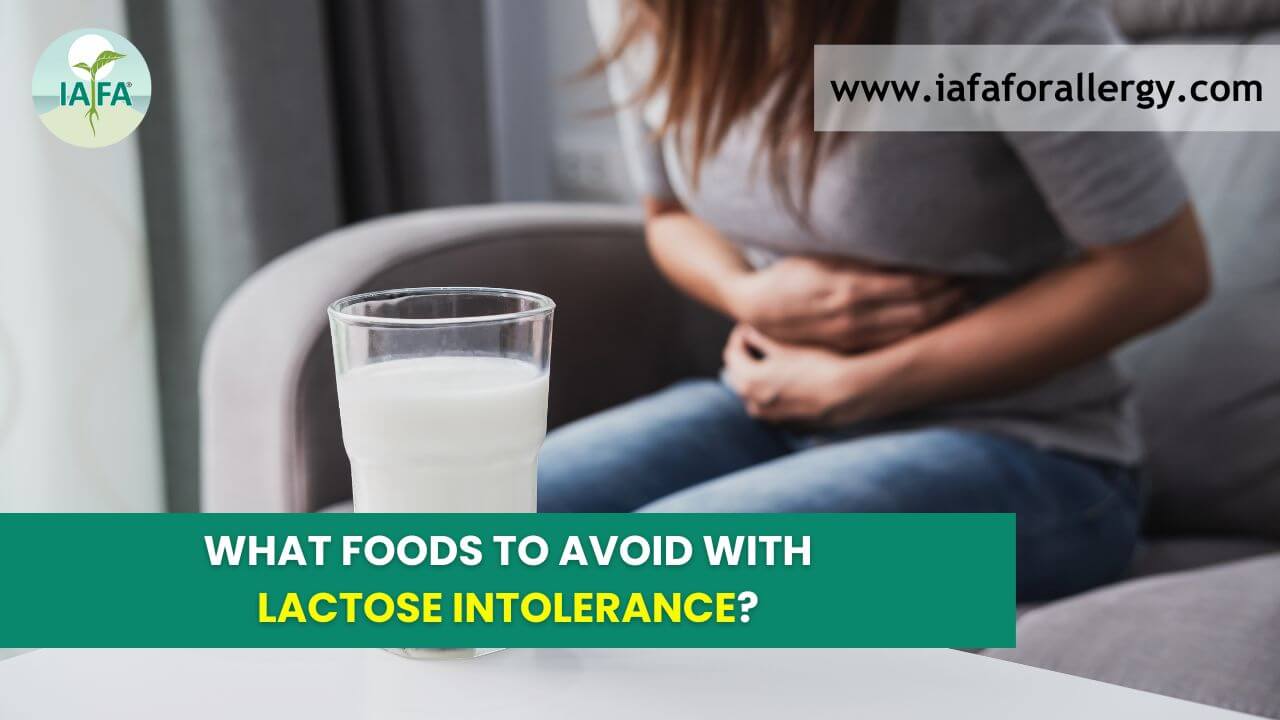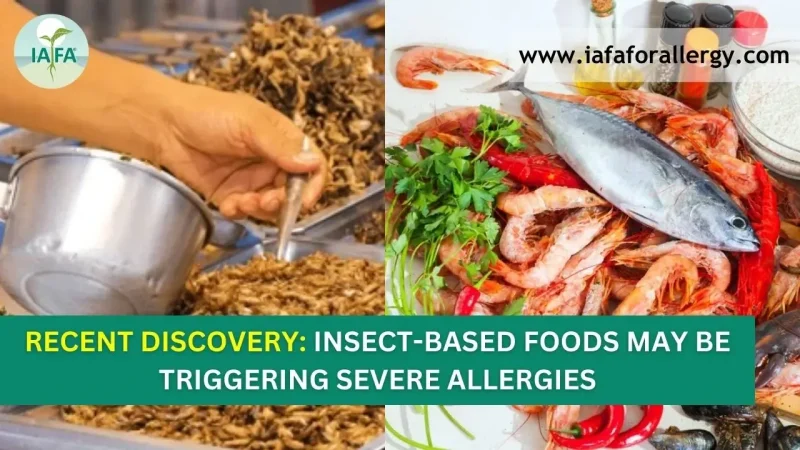Introduction
Milk (Dugadha) is considered the best rejuvenator, and vitalizer, as milk is nearly a complete food that provides appropriate nutrients (excluding iron, and niacin). Galactose and glucose in combination form lactose, which is the most common sugar found in milk. Lactose intolerance (Dugadha Asatmyata) occurs when milk is not effectively absorbed due to the absence of lactase enzyme in the body which digests lactose sugar. This condition manifests in various mild to severe signs and symptoms in the individual. It can affect adults, young children, and infants. In this blog, you can find out the food that should be avoided due to lactose intolerance with the reason why it should be avoided.
What Happens If Someone Eats Lactose with Lactose Intolerance?
- Due to the deficiency of the enzyme responsible for breaking down lactose i.e. lactase, the lactose does not break into glucose and galactose for absorption and this undigested sugar remains in the small intestine.
- The osmotic effect is created by this undigested sugar which results in diarrhea or loose stools as water is drawn into the intestinal lumen by osmotic effect. As this lactose then passes to the colon, gut bacteria ferment it and various gases like methane, carbon dioxide, hydrogen, etc. are produced which leads to flatulence, abdominal pain, and bloating.
- The fermentation process occurs due to undigested lactose which additionally generates short-chain fatty acid which leads to cramping and discomfort as they irritate the intestinal lining.
Also Read:- Cow Milk Allergy – Causes, Symptoms and Ayurvedic Treatment
List of Foods to Avoid with Lactose Intolerance – As Per Ayurveda
As per Ayurveda, lactose intolerance is correlated with weak digestion (Durbala Grahani), and indigestion (Ajirna) which occurs mainly due to an imbalance of digestive fire (Agni). So, food that should be avoided as per Ayurveda in lactose intolerance are as follows:
1. Milk: As per Ayurveda milk is considered heavy (Guru), and sweet (Madhura), and in lactose intolerant individuals it remains undigested, suppresses Agni, and results information of toxin (Ama) which leads to various symptoms like heaviness, bloating, etc due to aggravation of Kapha and Vata. So. Milk should be avoided.
2. Curd: As per Ayurveda curd is Guru (heavy), Amla (sour) leads to an increase in Kapha and makes it difficult to digest. It blocks the channels (Strotas) in the individuals, results in fermentation in the gut, and worsens symptoms of indigestion. So, curd should be avoided in lactose-intolerant individuals.
3. Milk-Based Sweet Lassi (Madhura Takra): Madhura Takra promotes Kapha accumulation, especially in individuals with weak digestion (Manda Agni) as it is heavy (Guru), sweet (Madhura) and leads to various symptoms like heaviness, bloating, etc.
4. Butter (Navneeta): Butter (Navneeta) is unctuous (Snigdha), sweet (Madhura), and heavy (Guru) which clogs the digestive channel (Anavaha Strotas), aggravates Kapha, and creates toxin (Ama) due to slow digestion which results in various symptoms related to lactose intolerance.
5. Milk-Based Desserts (Kheer): Kheer consists of heavy ingredients (Guru) and a sweet taste (Madhura). Consuming this in a weakened Agni person results in information of toxin (Ama) as it is difficult to digest, aggravates Kapha, and diminishes Pitta.
List of Foods to Avoid with Lactose Intolerance – As Per Modern Science
1. Milk: As we know there is a deficiency of lactase in lactose intolerant individuals and milk contains approximately 4 to 5 grams of lactose in 100 ml of milk. In the absence of lactase, this lactose leads to bacterial fermentation and, the production of short-chain fatty acid as reaches the colon undigested which leads to the production of gas and irritation of the gut lining.
Avoid: One with lactose intolerance should avoid Cow’s milk, Buffalo milk, and Goat’s milk.
Substitute of Milk: Plant-based milk like oat milk rich in Vitamin B, and fiber, almond milk rich in Vitamin E and low in calories, Soy milk with high protein, coconut milk easy digestible, etc.
2. Soft Cheese: There are various types of soft cheeses like ricotta, Paneer, cream cheese, etc. Due to aging usually lactose content converts into lactic acid but due to minimal aging soft cheese retains most of the lactose i.e. approximately 0.1- 5 grams per 30 grams and thus it should be avoided in case of lactose intolerance.
Avoid: Avoid the use of ricotta, mozzarella, paneer, cream cheese, etc.
Substitute for soft cheese: Aged varieties like Parmesan which is hard cheese that contains negligible lactose can be used as an alternative.
3. Butter and Cream: In butter, lactose is in trace amounts but if talk about cream then it contains a high level of cream i.e. approximately 2 to 3 grams per tablespoon. In lactose intolerant individuals this amount is enough to trigger the symptoms. So, Butter and cream should be avoided for lactose intolerance.
Avoid: Butter, whipped cream, cream, etc.
Substitute for butter and cream: Lactose-free yogurt, and cream can be included.
4. Frozen Dessert and Ice Cream: Frozen desserts and ice creams are made up of cream, milk, sugar, etc. Lactose content varies in these desserts and ice creams, but they are enough to exacerbate lactose intolerance in individuals.
Avoid: Gelato, frozen dairy desserts, ice creams, etc.
5. Curd (Dahi): Due to bacterial activity in the process of making traditional Dahi (Curd) i.e. when milk is fermented, lactose is reduced but industrial curd often contains added milk which increases lactose content. So, it should be avoided.
Avoid: Non-organic, commercially processed curd should be avoided.
6. Processed Food: In many processed foods, even in non-dairy products milk powder, lactose, or whey is added. Individuals are unaware of hidden sources in processed food, especially in non-dairy products and when they take them it results in lactose intolerance allergy. So always check the label properly to avoid such mishaps.
Avoid: Bread, cakes, cookies type baked foods, potato chips, crackers, instant soups, gravies, sauces, candies, chocolate, etc.
When to Seek Doctor Advice?
If the individual is suffering from situations like unexplained weight loss, severe or persistent symptoms like diarrhea, abdominal pain, etc., signs of malnutrition, symptoms persist even after avoiding dairy products, blood in stool, irritability, etc. then lactose intolerance treatment is needed ASAP, so that symptoms should be managed effectively, the underlying condition should be identified, and nutritional needs should be met.
Conclusion
If the individual is mindful and aware of lactose-containing food then by avoiding them and using their substitute, can enjoy nutritious and tasty food while minimizing lactose intolerance allergy.
However, a lactose intolerance diet may lead to various deficiencies in the body like vitamin D and calcium deficiency. Therefore, it is always advisable to contact an experienced dietician or expert healthcare provider before beginning a lactose-free diet. For this, you can connect with the Ayurvedic and healthcare experts at IAFA®, who aim to treat the root cause of allergy-causing agents and provide relief from allergic symptoms. The dieticians at IAFA Ayurveda can help you avoid lactose allergy and its symptoms naturally by providing a balanced diet that is free from lactose and also provides complete nutrition to the body. So, book your appointment to consult now!
Frequently Asked Questions (FAQs)
Q1. Are All Dairy Products Harmful and Avoided in Lactose Intolerance?
Ans. No, all dairy products are not harmful, Hard cheeses and lactose-free milk may be tolerable but always consult with your health provider before consuming them.
Q2. Why is Curd Avoided in Lactose Intolerant Individuals?
Ans. Lactose-intolerant individuals consume curd with the thinking that it is fermented but curd still contains residual lactose, especially in non-organic or commercially available curd which triggers symptoms in a few individuals.
Q3. Why is Processed Food Often Problematic for Lactose Intolerant Individuals?
Ans. Various processed foods that are non-dairy sometimes contain hidden lactose like whey or milk powder which make it problematic for lactose-intolerant individuals.
Q4. Can Lactose-Intolerant Individuals Consume Butter?
Ans. Yes, but in highly sensitive individuals it may cause symptoms as it contains minimal lactose.
References
- Raju, Aashik & Meshram, Akashdeep. (2022). Lactose intolerance: an ayurvedic perspective-a conceptual study. Journal of Ayurvedic and Herbal Medicine. 8. 147- 151. 10. 31254/ jahm. 2022. 8216.
- A., Chaudhary. (2017). The Concept of Lactose Intolerance in Ayurveda. International Journal of Ayurvedic and Herbal Medicine. 10. 18535/ ijahm/ v7i4. 09.
- Wilt, Timothy & Shaukat, Aasma & Shamliyan, Tatyana & Taylor, Brent & Macdonald, Roderick & Tacklind, James & Rutks, Indulis & Schwarzenberg, Sarah & Kane, Robert & Levitt, Michael. (2010). Lactose intolerance and health. Evidence report/technology assessment. 192. 1- 410.
- Szilagyi A. Adaptation to Lactose in Lactase Non- Non-Persistent People: Effects on Intolerance and the Relationship between Dairy Food Consumption and Evaluation of Diseases. Nutrients. 2015 Aug 13; 7 (8): 6751- 79. doi: 10. 3390/ nu- 7085309. PMID: 26287234; PMCID: PMC- 4555148.
- Deng Y, Misselwitz B, Dai N, Fox M. Lactose Intolerance in Adults: Biological Mechanism and Dietary Management. Nutrients. 2015 Sep 18; 7 (9): 8020- 35. doi: 10. 3390/ nu- 7095380. PMID: 26393648; PMCID: PMC- 4586575.








